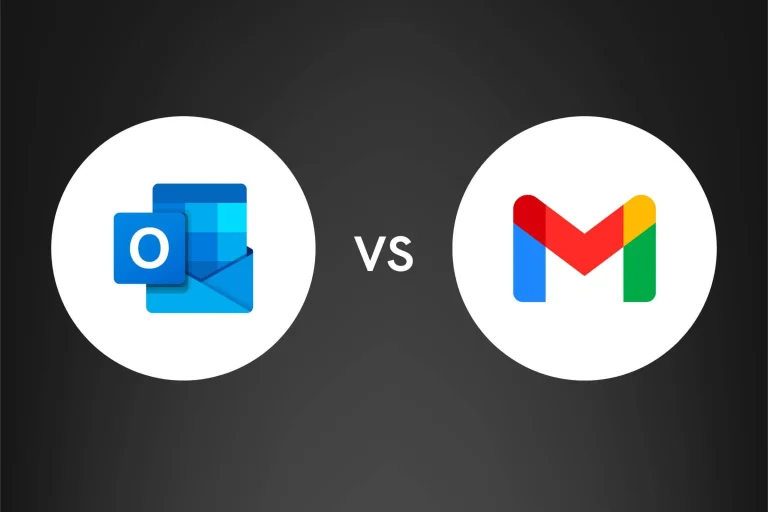Have you ever wondered what a domain name is and why it’s important for your website? In this article, learn all the basics of domain names, from what they are to why you need one for your website. Get ready to take your understanding of web hosting and domains to the next level!
What is a Domain Name?
A domain name is a unique identifier for a website or email address. It consists of two or more parts, separated by a dot (.). The first part is the website’s or individual’s name, while the second is the top-level domain (TLD), such as .com, .net, or .org.
Domain names are used to route internet traffic to the correct server and to identify email accounts. For example, when you type www.example.com into your web browser, it will send a request to the DNS server to look up the IP address for that domain name. The DNS server will then respond with the IP address of the server hosting the website.
Email addresses also use domain names. The part after the @ symbol is the email account domain name, such as gmail.com or yahoo.com. When you send an email to [email protected], your computer will first look up the IP address of gmail.com using DNS before sending the email to that server.
Domain names are registered with ICANN, responsible for managing and regulating them. For example, you can register a domain name through a registrar such as GoDaddy or Namecheap. Once you have registered a domain name, you can point it to a web hosting service to host your website or set up an email account using that domain name.
The Benefits of Having Your Own Domain Name
There are many benefits of having your own domain name. The most obvious is that it helps you establish your online brand and build a professional identity. It also makes it easier for people to find you online and can help you stand out from the crowd.
Another benefit is that it gives you more control over your online presence. With your domain name, you can create a custom email address that reflects your brand (e.g. [email protected]), and you can also set up a website that’s entirely under your control. This can be helpful if you refrain from using social media platforms or third-party services that might not align with your brand values.
Lastly, having your domain name can make you look more credible and trustworthy to potential customers or clients. For example, in a sea of generic web addresses, a custom domain name shows that you’ve taken the time and effort to invest in your business and build a professional online presence.
How to Choose the Right Domain Name for Your Website
When choosing a domain name for your website, there are a few things you need to take into account. First, the domain name is the address of your website on the internet, and it is what people will use to find your site. It is important to choose a domain name that is easy to remember and spell and reflects your site’s content. You also want to ensure that the domain name is available and not already taken by another website.
Here are some tips for choosing the right domain name for your website:
- Keep it short and simple – A shorter domain name is easier to remember and less likely to be misspelled.
- Make it relevant – Choose a domain name that reflects your site’s content. This will help people remember it and find your site more easily.
- Check availability – Use a tool like GoDaddy’s Domain Name Search to check if the domain name you want is available.
- Register your domain – Once you’ve found an available domain name, you can register it through a service like GoDaddy or Hover.
How to Register a Domain Name
If you’re reading this, chances are you already know what a domain name is and why you need one.
What is Domain Registration?
Domain registration is acquiring a domain name from a registry such as GoDaddy or Network Solutions. When you register a domain name, it becomes your legal property and can only be used by you or someone authorized. The length of time you can register a domain name varies; some registrars offer up to 10 years, but most allow for 1-3 years at a time.
Domain Registration Process
When registering your domain name, there are several steps involved in the process:
- Choosing the right domain name registrar – Many different registrars are available on the market today; some specialize in certain domains (such as .com or .net), while others offer all types of domains (including country code top-level domains). Make sure that the registrar you choose has good customer service and competitive prices.
- Providing contact information – When registering your domain name, you will need to provide contact information such as your full name, address, phone number, and email address. ICANN will use this information – the Internet Corporation for Assigned Names and Numbers – when verifying ownership of the domain
- Paying registration fees – Depending on which registrar you choose, additional fees may be associated with registering your domain name, such as setup or annual renewal fees. Make sure that these fees are clearly outlined before proceeding with registration so that there are no surprises down the road!
- Finishing registration – The final step in registering a domain is confirming that all of the information provided is correct and agreeing to any applicable terms and conditions set forth by the registrar.
Once this is done, congratulations! You now own your very own website URL!
Who Can Help You Manage Your Domain Names?
A few different types of people can help you manage your domain names. The most common type is a web hosting company. These companies will usually offer some sort of domain management service as part of their web hosting packages. Another type of company that can help you manage your domain names is a domain registrar. These companies specialize in registering and managing domain names. Finally, some individuals offer domain name management services. These individuals usually have experience managing multiple domains and can help you with the technical aspects of managing your domain names.
Tips for Choosing & Managing Domain Names
There are a few things you need to keep in mind when it comes to domain names. First and foremost, your domain name should be reflective of your brand. It should be easy to remember and spell and short and sweet. You also want to make sure you choose a .com extension, which is the most popular and recognizable.
Once your domain name is picked out, the next step is registering it. This can be done through many different registrars, such as GoDaddy or Namecheap. Once you have registered your domain name, you must set up DNS (Domain Name System) records. These records tell web browsers where your website is located.
Last but not least, once you have your domain name registered and set up, you will need to choose a web hosting provider. This is where your website’s files will be stored and accessed from. In addition, a good web hosting provider will offer features such as email accounts, website builders, and eCommerce platforms.
Conclusion
Having a domain name is essential for any website and business. Not only does it give your customers and users an easy way to find you, but it also helps establish your brand identity. For example, a well-chosen domain name can improve search engine rankings and ensure that people remember you or confuse you with someone else. With the right knowledge on how to pick the best domain name for your needs, there’s no reason why you shouldn’t have one today!















